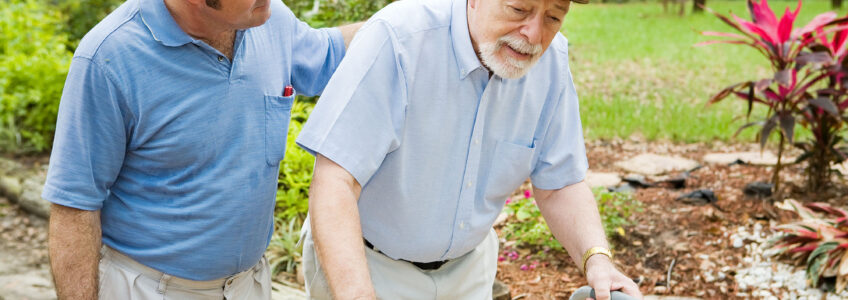
Maintaining equilibrium becomes important as we age. Seniors with balance impairments face considerable risks, including falls that can cause injury or hospitalization. According to the CDC, falls are the greatest cause of injury in seniors.
With the help of home care providers and loved ones, seniors can begin to understand balance issues and how to treat them, which can enhance their quality of life and safety.
What Causes Senior Balance Issues?
There are a number of reasons that seniors might have balance issues. Home care providers can explore a few of the more common reasons with seniors, including the following:
- Reduced Flexibility and Muscle Weakness: Muscle mass declines and joints stiffen with aging. This impairs balance, making it easier to fall.
- Inner Ear Issues: The inner ear vestibular system regulates equilibrium. Vertigo and labyrinthitis can affect this system, causing dizziness and instability.
- Vision Issues: Vision is essential for equilibrium. Unfortunately, cataracts, glaucoma, and macular degeneration decrease depth perception, increasing fall risk.
- Chronic Medical Issues: Balance issues might result from arthritis, diabetes, or Parkinson’s, as they may impair nerve function, joint mobility, and muscular strength, making it harder for seniors to stand.
- Medications: Many seniors take various medications that can induce dizziness or drowsiness. Additionally, sedatives, antidepressants, and blood pressure medicines may affect balance.
Consequences of Falling for Seniors
Seniors often worry about falling, and with good reason. The truth is that falling can have dire consequences, especially for seniors who live alone. This is just one of the many reasons why having a strong support system that includes home care services, loved ones, and others is important, as it means someone is checking in with seniors on a regular basis, ensuring they’re healthy and well.
It’s also important to understand that the consequences of falling aren’t just physical. Seniors might also lose their independence due to mobility issues after the fall. There might also be a significant emotional impact, as feelings of anxiety, despair, and a loss of confidence might occur. Unfortunately, this might also lead to social isolation, which is already a concern for seniors.
Home Care Helps Seniors with Balance Issues
Personal, hands-on home care can improve a senior’s quality of life and help them manage balance issues. First, they can work with loved ones and seniors to assess the home for fall hazards. When found, they can recommend appropriate fall-prevention strategies. These include installing grab bars in the bathroom and ensuring hallways are clutter-free.
They may also work with seniors to encourage physical activity. Regular exercise boosts balance, muscle strength, and mobility. Some of the things seniors can try include the following:
- Strength training
- Flexibility exercises, such as yoga or stretching
- Tai Chi
Home care providers can also help seniors tackle daily tasks, especially if they’re already struggling with balance issues, such as cleaning around the home and running errands for them.
With the help of home care providers and their families, seniors can learn to tackle balance issues head-on by addressing them and then taking the appropriate preventative steps to increase their safety in the home.
Plus, with home care by their side, the emotional impact of balance issues is mitigated as they have someone to socialize with on a regular basis.
If you or someone you know needs Home Care in Blaine, MN, contact Adara Home Health. We provide quality and affordable home care services for many fragile or senior members in the communities we serve. Call us at (888) 525-7742 for more information.
Sources:

